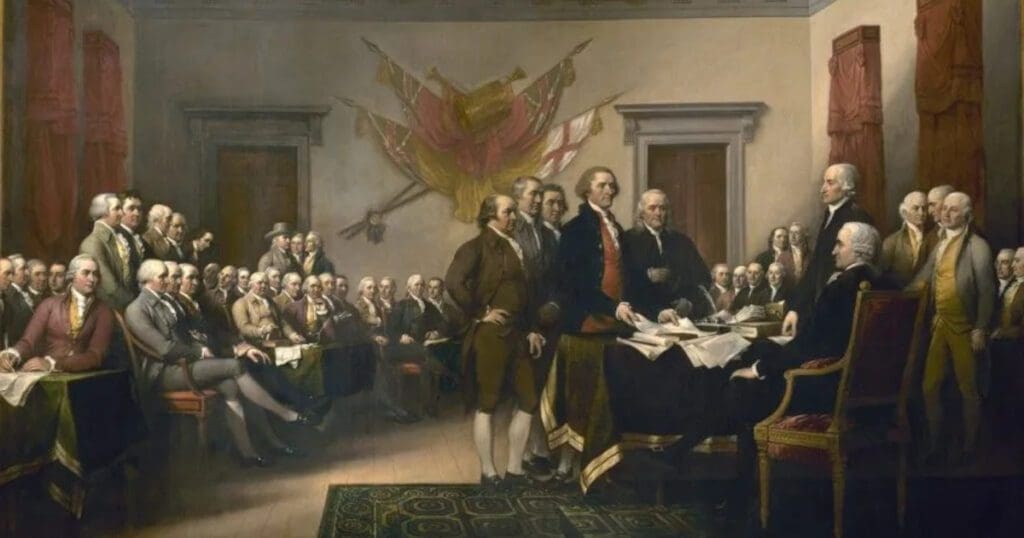
Recently, I wandered through the corridors of my mind reflecting on Independence Day. I ran into Charles Dickens. His “Christmas Carol” has inspired many people to look at their lives through the lens of their past, future, and present.
Wandering further, I saw a sign on a door that read “Dangerous Memories.” Beneath were words echoing theologian Johannes Metz.
“Dangerous memories are not nostalgia or visions of the past, but “memories which make demands on us” in the present.
Such memories are ones we have to take into account, memories, as it were, with a future content. “
This Vincentian Mindwalk reflects on the “dangerous memory “ of the Exodus and Independence Day in our past, present, and future.
Independence Days Past
A list of grievances
What inspired the struggle for our independence? The Declaration of Independence itself lists many grievances. (Many are still relevant today in our polarized nation.)
However, going beyond a list of grievances, some may be surprised to learn that a major inspiration was the biblical Exodus.
The Bible in colonial times
The Bible was part of the cultural air breathed in the colonies at the time and gave definition and content to the aspirations of the founders.
America’s founders often compared Britain’s King George to the oppressive Pharaoh in their struggle for independence.
The quotation on the face of our Liberty Bell reads:
“Proclaim LIBERTY Throughout all the Land unto all the Inhabitants Thereof.” This was a command given to Moses while at Mount Sinai. Leviticus 25:10
- Benjamin Franklin submitted a design for our national emblem. It featured the Red Sea crossing from the Book of Exodus.
- Abraham Lincoln was eulogized as a modern Moses for freeing the slaves.
- Martin Luther King Jr. invoked Moses on the night before he was shot.
In a frightening irony, the notorious “slave bible” which slaves were allowed to read, cut out the first 19 chapters of the Book of Exodus. Slaveholders thought it might put dangerous ideas of freedom into the minds of slaves!
American values today
St. John Paul II summed up our ideals (departing the USA 9/19/1987)
America, your deepest identity and truest character as a nation is revealed in the position you take towards the human person. The ultimate test of your greatness in the way you treat every human being, but especially the weakest and most defenseless ones
All the great causes that are yours today will have meaning only to the extent that you guarantee the right to life and protect the human person:
– feeding the poor and welcoming refugees;
– reinforcing the social fabric of this nation;
– promoting the true advancement of women;
– securing the rights of minorities;
– pursuing disarmament, while guaranteeing legitimate defence;
all this will succeed only if respect for life and its protection by the law is granted to every human being from conception until natural death.
Culture Wars
Today, America is conflicted about its values, whether the means of educating its children, the right to bear or ban arms, the protection of its vast lands, lakes, and air, or the relationship between the states and the federal government, restrictions on who can vote, the right to life and, even the very nature of truth.
Future – promise for tomorrow
We are at a turning point today.
The liturgy of the Eucharist on Independence Day reminds us of the dangerous memory of the Exodus and the Last Supper.
“(Christ’s) message took form in the vision of our founding fathers as they fashioned a nation where we might live as one. His message lives on in our midst as our task for today and a promise for tomorrow.” (Eucharistic Preface)
Is independence a dangerous memory for you?
Originally posted on Vincentian Mindwalk







0 Comments